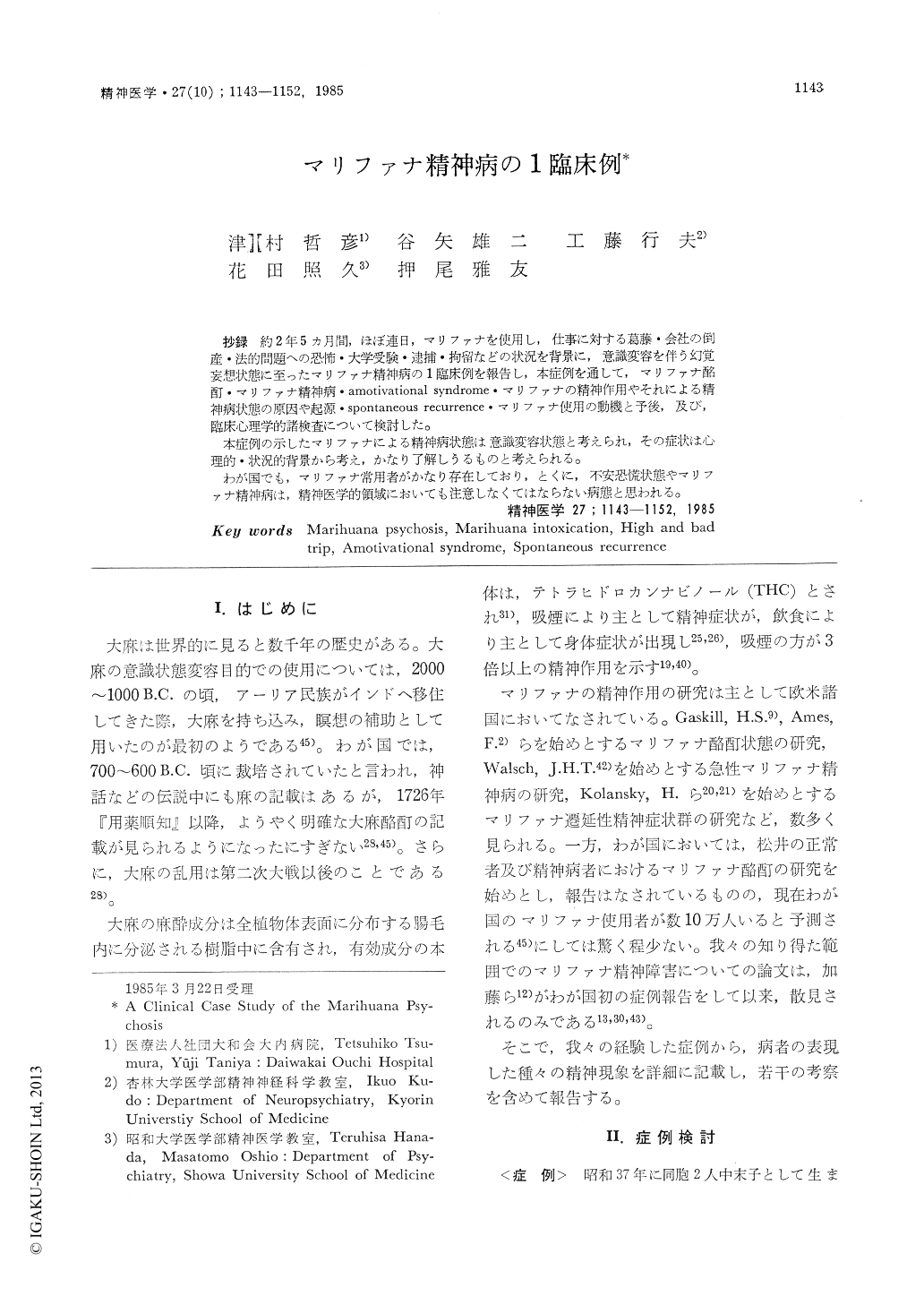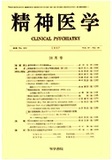Japanese
English
- 有料閲覧
- Abstract 文献概要
- 1ページ目 Look Inside
抄録 約2年5カ月間,ほぼ連日,マリファナを使用し,仕事に対する葛藤・会社の倒産・法的問題への恐怖・大学受験・逮捕・拘留などの状況を背景に,意識変容を伴う幻覚妄想状態に至ったマリファナ精神病の1臨床例を報告し,本症例を通して,マリファナ酩酊・マリファナ精神病・arnotivational syndrome。マリファナの精神作用やそれによる精神病状態の原因や起源・spontaneous recurrence・マリファナ使用の動機と予後,及び,臨床心理学的諸検査について検討した。
本症例の示したマリファナによる精神病状態は意識変容状態と考えられ,その症状は心理的・状況的背景から考え,かなり了解しうるものと考えられる。
わが国でも,マリファナ常用者がかなり存在しており,とくに,不安恐慌状態やマリファナ精神病は,精神医学的領域においても注意しなくてはならない病態と思われる。
For most persons, smoking marihuana is a pleasant, nonthreatening, and ego-syntonic experience. The degree of intoxication, pleasure and mystical experience varies and depends on the individual's personality, the existing emotional state, and previous environmental setting.
Adverse reactions to marihuana are also varied, but the experiences are generally unpleasant, threatening and ego-dystonic experiences including anxiety, fear, delusion-like ideation.
In Japan, reports of marihuana psychoses are very few. We have observed acute psychosis associated with marihuana intoxication in a young adult. We discussed marihuana intoxication, marihuana psychosis, amotivational syndrome, spontaneous recurrence, origins of these phenomena and prognosis in regard to this case.
This case is a 22-year-old male who used marihuana for about 21/2years continuously. He had experienced adverse reactions that occurred in the setting of stressful life events (conflict in his occupation, problems of illegality, entrance examination etc) . Consequently, he showed oneiroid-like states including hallucinations and delusions. He was treated with a small dose of buthyrophenone and given no drug for 3 weeks after admission. It took about 7 weeks for him to regain his normal and natural state of mind, but he showed a slight amotivational syndrome for a period of about 3 months.
In this case previous to the abuse of marihuana there had been no evidence of psychiatric illness. Other toxic agents had never been used. We diagnosed that he suffered from marihuana psychosis, for he could speak about his mind and his abnormal experiences frankly and objectively. He had good contact with us, and his intellectual functions were healthy. There were no neurological findings to indicate psychiatric disturbances besides those induced by marihuana.
We considered his character and his life history, and we found out profound intrafamilial conflict and his weak ego. Considering these points, we feel that the prognosis in this case is not so good. Since possession of marihuana is illegal, it may be difficult to obtain accurate histories. But psychiatrists must be alert to the possibility of marihuana psychosis like this case resembling schizophrenic psychosis or paranoid psychosis.

Copyright © 1985, Igaku-Shoin Ltd. All rights reserved.


